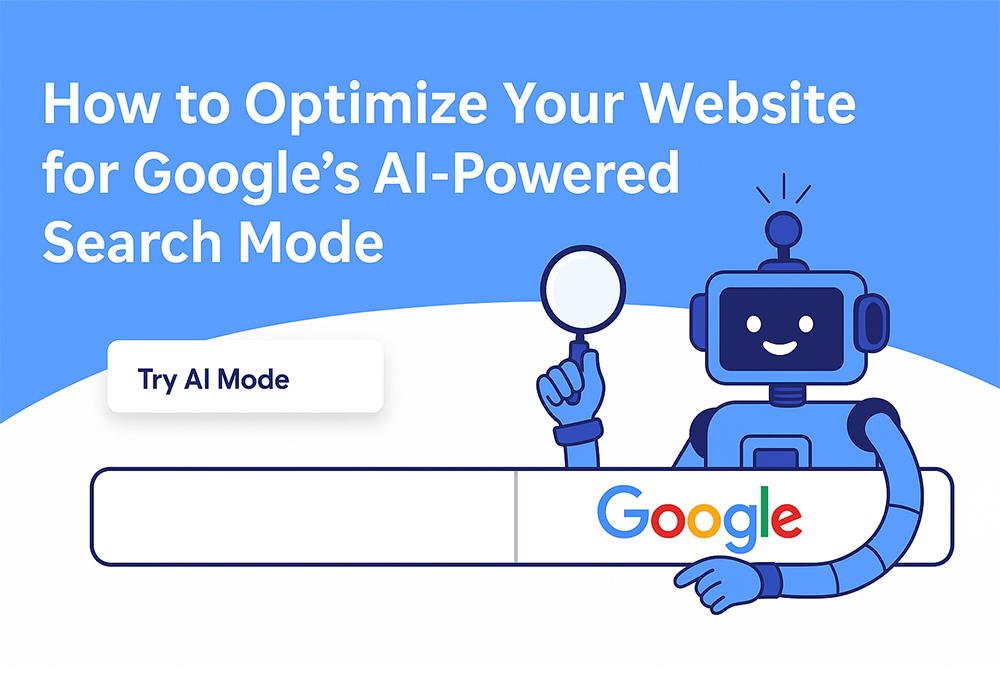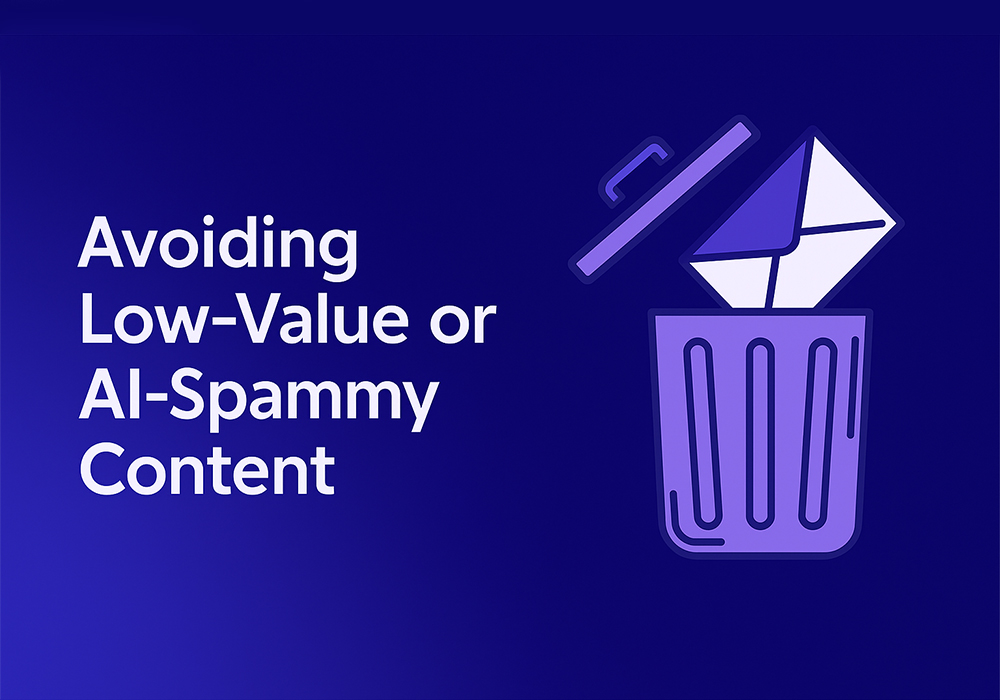How to Optimize Your Website for Google’s AI-Powered Search Mode

Google’s AI-powered search experience, which includes AI Overviews, is changing the way content appears on the internet. Although SEO principles are still important, maintaining visibility requires adjusting to this more intelligent search strategy. Here’s how to get your website ready for success in this changing environment.
Understanding Google’s AI-Powered Search Experience
Google’s AI Summaries provide users with brief, digestible answers that are drawn from excellent online sources. To put it another way, if AI is to read and display the content on your site, it must be readable, relevant, and digestible. This AI layer prefers content that meets user intent directly, not blue links of yore.
To ensure your content aligns with these evolving standards, explore our SEO services designed to enhance visibility and structure your site for AI-driven search.
Aligning with Google’s Core Ranking Systems
AI Overviews don’t operate on a separate algorithm—they still rely on Google’s core ranking systems. So, if your content already performs well in organic search, you’re on the right track. Optimizing for helpfulness, relevance, and trust remains central to appearing in AI-assisted results.
Prioritizing People-First, Helpful Content
Content should be written for humans, not for algorithms. Write to directly respond to a specific question or issue your audience is looking for. That satisfies AI algorithms, but it also generates short-term trust and engagement with your audience.
Structuring Content for AI Comprehension
Well-structured literature with bullet points, distinct headings, and brief paragraphs might yield more insightful data for AI. Schema markup and structured data further support this understanding, allowing Google to appropriately frame your content.
Strengthening Topical Authority and Relevance
Develop content clusters around your main topics to establish you as a professional. Discuss subtopics, associated questions, and common questions to establish depth. AI algorithms favor sites that are seen as authoritative and constantly informing under a certain topic category.
Enhancing Page Experience and Technical Health
A fast-loading, mobile-optimized site with clean navigation improves user experience and aligns with Google’s technical best practices. Ensure your site passes Core Web Vitals and has no major crawl or indexing issues that might impact your visibility.
Leveraging First-Hand Experience and Trust Signals
Integrate first-hand observations, testimonies, and original research. Content drawn from actual experience is more and more preferred by Google, particularly for subjects where trust and truth are most crucial. That is also supported by including author biographies and referencing credible sources.
Preparing for AI-Generated Overview Inclusion
While you can’t opt-in to AI Overviews as such, material that gives short answers and turns out correct is likely to be emphasized. Summarize, write concisely, and anticipate follow-up questions to better support AI-generated results.
Avoiding Low-Value or AI-Spammy Content

The quality of content can be jeopardized if generative AI is only employed to create it without a human review.
AI systems can overlook thin, redundant, or keyword-rich sites.
There is a need for professional and human editing and management in order to ensure quality and credibility.
Tracking Performance Beyond Traditional Rankings
As AI Overviews rise in visibility, traditional keyword rankings aren’t the only metric to track. Monitor click-through rates, featured snippet appearances, and on-page engagement to understand how your content performs in the new search experience.
Conclusion
Improving quality, understanding, and plausibility is more crucial while optimizing for Google’s AI-driven search than rewriting entirely how you do things. Your site will be more likely to stay relevant to the changing landscape if your site follows basic SEO best practices and adapts its content to AI understanding.